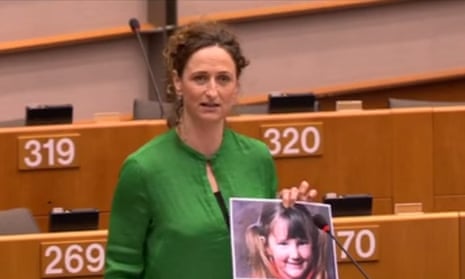One of the distinctive features of campaigning investigative journalism is the way in which its practitioners stick with it.
Some of the very best instances - Watergate, thalidomide, phone hacking, the Rotherham child sex scandal - involved years of commitment by reporters.
Here’s another example: the lengthy campaign by Irish freelance journalist Gemma O’Doherty to expose the truth behind the disappearance in 1977 of a six-year-old girl.
Mary Boyle vanished while visiting her grandparents in Ballyshannon, County Donegal and is presumed dead. O’Doherty is convinced that the girl was killed by someone known to her and that a politically-inspired police cover-up ensued.
Mary Boyle is Ireland’s Madeleine McCann. Her case is the country’s longest-running missing child investigation. Not that there has been much investigation.
There has been no inquest, no commission of inquiry and no debate in the Irish parliament despite mounting evidence, supported by the testimony of two former police officers, of a cover-up.
It was some 18 months ago that O’Doherty, who is noted for her investigations into police corruption, was first contacted on behalf of Mary Boyle’s surviving twin sister, Ann Doherty.
She has since worked tirelessly to highlight the case. It has received some isolated coverage down the years - here in the Donegal Democrat and here on the news website thejournal.ie - and O’Doherty has also written articles for another website, broadsheet.ie.
But Ireland’s mainstream media have steadfastly refused to take up the cause. That failure prompted O’Doherty to make a documentary about the case, Mary Boyle: The untold story, which contains interviews with two retired gardaí, a sergeant and a detective inspector.
A trailer on YouTube was posted five days ago and has already attracted more than 10,000 viewers.
O’Doherty also helped to engineer a meeting on Tuesday this week between Ann Doherty and Micheál Martin, the leader of one of Ireland’s main political parties, Fianna Fáil, which was reported by the Irish Times.
They presented evidence to Martin about a politician having sought to intervene in the case. He told her that the appropriate place for such allegations was the Gardaí.
But, she replied, “we have no faith in the Gardaí. You wonder what you have to do to get justice in this country.”
A similar plea was made in the European parliament this week by a Sinn Féin MEP, Lynn Boylan, who said: “Mary Boyle has been failed by the Irish state.”
The Boyle case has also been taken up by a lawyer, Daragh Mackin of Kevin Winters in Belfast, who has called for the convening of an inquest “touching upon the death of... Mary Boyle.”
He has supported Ann Doherty’s concern about alleged political interference in the original Garda investigation and her request that a commission of investigation be convened.
What is certain is that O’Doherty will not let the matter lie. Like the very best investigative journalists, she will go on trying to reveal the truth in the face of apathy.
What she requires is a powerful media organisation to get behind her. The Watergate duo had the Washington Post. The thalidomide exposé was the result of a united Sunday Times campaign. With phone hacking Nick Davies benefited from the Guardian’s belief in his story. And the Times backed Andrew Norfolk’s dogged reporting on the Rotherham child sex scandal.
Why is Ireland’s mainstream media ignoring Mary Boyle?
NB: Rightly, it has been pointed out that there has been coverage also in the Irish Independent and the Sunday World. But the point is that campaigning journalism, if it is to have any effect, requires persistent repetition in order to rouse public opinion and bring pressure to bear on the authorities. Odd stories do not carry the same weight.
